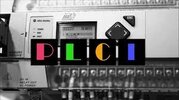- Регистрация
- 27 Авг 2018
- Сообщения
- 40,599
- Реакции
- 654,287
- Тема Автор Вы автор данного материала? |
- #1

- By the end of this course, you will be able to create a PLC program from scratch.
- The primary and overall objective of this course is to give a novice an understanding of PLC programming, ladder logic, and the inner workings of a standard HMI (Human-Machine Interface).
- Students will learn the difference between digital and analog signals and how to bring them into a PLC, process them, and send them back out.
- Students will be familiarized enough with a sufficient variety of ladder logic instructions to create a complete PLC program from scratch.
- Students will explore basic, standard controls techniques for things like HOA control, level control, pump control, and (on at least an introductory level) PID control loops.
- Students will develop an understanding of alarm and notification programming, and the relevant considerations to safety and operator usability.
- Students will be introduced to HMI development and given a general understanding of how an HMI program works.
- There is no software, hardware or experience required in order to complete this course, but practicing the techniques discussed on an emulator or live PLC are necessary steps toward eventual mastery.
This course is designed to equip the novice with no prior PLC programming experience with the basic tools necessary to create a complete PLC program using ladder logic common to most current platforms.
Using the Rockwell software RSLogix 500 and FactoryTalk View Studio, we will be covering such topics as general controls, digital and analog IO, ladder logic programming, alarm / notification handling, HMI, emulation, best practices and more.
In the end, we will go through an entire, working PLC program and HMI line by line to solidify comprehension of the learning objectives.
Why Do You Teach Five PLC Courses on PLC Dojo?
This course, PLC I (PLC Fundamentals) teaches you how to program with the focus on ladder logic, which is the most popular PLC programming language. The goal is to teach you everything you need to know to make a PLC do what you want it to do. You are also given all the software necessary to both CREATE and RUN your own programs live - right on your own computer. For some people, that's all they really need.
But for the people who want to really master PLC programming, they have the option of continuing into the advanced material with me.
PLC II (Applied Logic) forces you to take what you've learned and solve problem after progressively harder problem unassisted. You get a spec and are told simply: "Make it work, and don't progress until you have." After, you get to watch me solve each one as well. By the end, you don't just know how to program - you are a PROGRAMMER.
PLC III (Process Visualization) gives you both knowledge and experience in FIVE different HMI / SCADA development environments. By the end, you've created several COMPLETE visualization (screen) projects that you can actually run on your own computer (and SHOW PEOPLE in an interview) with no additional hardware.
PLC IV (IEC Paradigms) is only for the heavyweights. This course teaches you how to program using all five IEC programming languages (plus one more) in multiple environments. There are projects as well, so by the end, you have seen it all and DONE it all as well. There won't be anything anybody can show you that you won't already be familiar with.
PLC V (TIA Portal Master Project) is the culmination of everything. In that course, you'll program an entire power plant using all five PLC programming languages (in PARALLEL!) with a full HMI. It's a massive and complex project that really showcases your talents in an interview!
Who this course is for
- This course is written for anybody who wants to become functional with ladder logic as quickly as possible.
DOWNLOAD:




